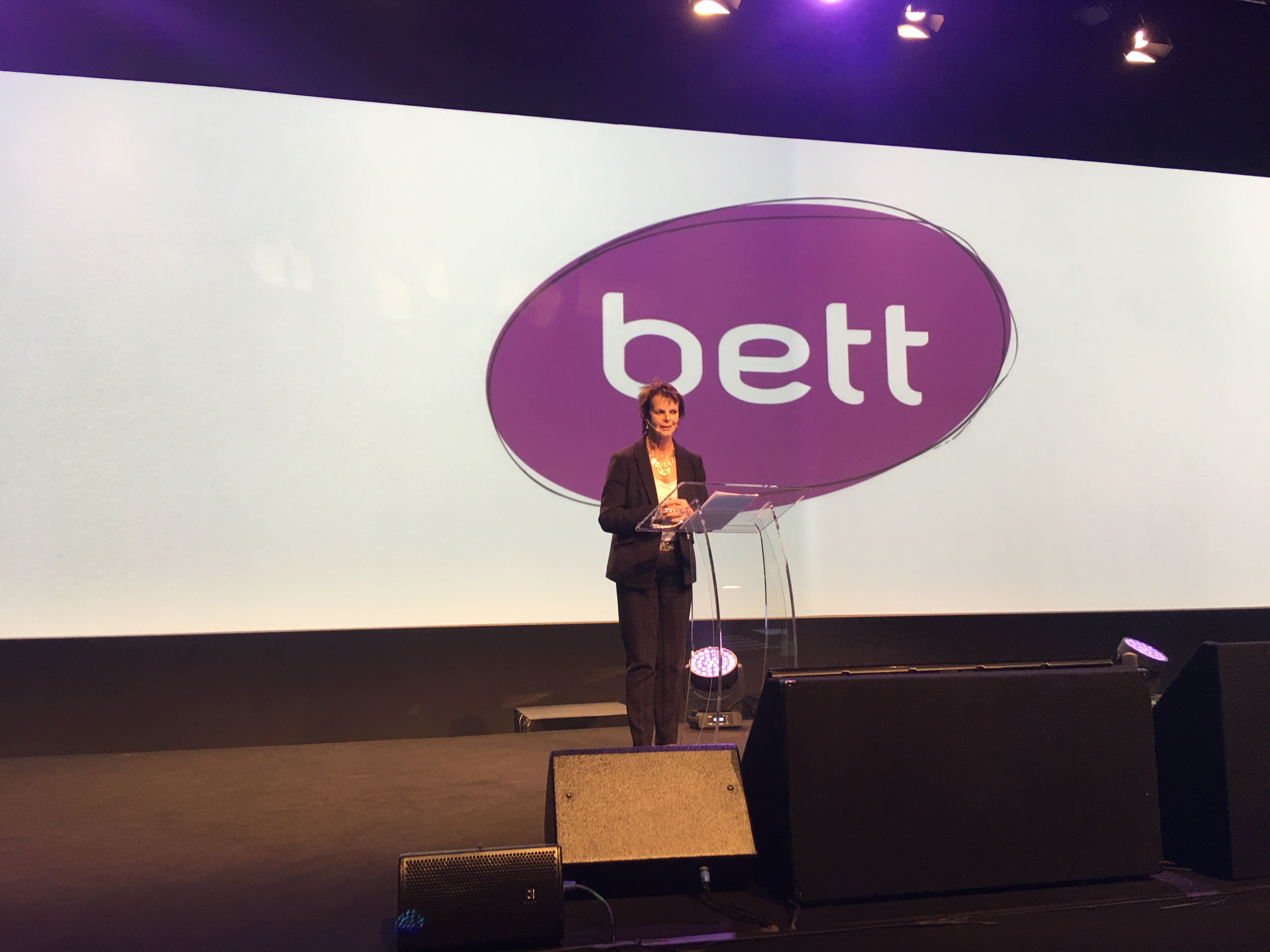Bett 2018: Digital skills need focus at every stage in education
Apprenticeships and Skills minister wants to tackle the problem of recruiting specialist digital talent in UK


Education technology will be key to fostering the digital talents of the UK and help combat the problem of recruiting the right people into increasingly digital jobs.
So claims East London Apprenticeships and Skills Minister Anne Milton, who told delegates in a keynote speech at BETT 2018, that many companies in the UK have told the government that they are struggling to recruit the specialist digital talent they need.
"I want to focus on what we are doing at every stage in education to develop the digital skills we need to help us address these challenges," she said.
She said that EdTech can play a vital role as a tool for teachers in our schools, colleges and Universities and as a study in itself for students.
"Technology should reduce teacher workload. It should be another way of making education more accessible and inclusive. It should allow educators and students' access to share content through cloud-based services," she said.
But proper implementation is key, according to Milton. "As with any intervention, the most successful changes are led locally with the sector to make sure you have the information and skills you need to make the right decisions for you and your institution," she added.
Milton said that 90 percent of new jobs require digital skills, so children need to grow up as more than just digital consumers but practitioners and creators. She mentioned that the last budget had already allocated funds for 100 schools to get full fibre broadband. There would also be 84 million of new funding over the next five years to improve the teaching of computing and drive up participation in computer science qualifications, particularly amongst girls.
Get the ITPro daily newsletter
Sign up today and you will receive a free copy of our Future Focus 2025 report - the leading guidance on AI, cybersecurity and other IT challenges as per 700+ senior executives
This includes increasing the expertise of up to 8,000 existing computer science teachers and a new National Centre for Computing Education.
"This additional investment builds on the curriculum reforms we have already made. This is a step-change from the previous approach, and includes challenging new content such as coding and algorithms, providing students with the basic building blocks they need to move on to successful further study or work," said Milton.
The minister added that the government was currently implementing major systemic reforms in vocational education with the introduction of digital degree apprenticeships which were designed by employers and universities working in partnership to "create relevant, high-quality curricula to provide the much-needed skills that industry needs".
But digital exclusion was still proving a "huge challenge". Milton confirmed that the government was to introduce full funding for basic digital training for adults from 2020.
"Adults will have the opportunity to undertake improved digital courses based on new national standards. This will set out the skills and capabilities people need to get on in life and work. We will consult on these new standards in the autumn."
She said the government wants everyone to get the digital skills they need.
"The country needs them to have those skills. Our economy depends on it. We can't do this alone so your support, your input is vital," she told delegates.
Rene Millman is a freelance writer and broadcaster who covers cybersecurity, AI, IoT, and the cloud. He also works as a contributing analyst at GigaOm and has previously worked as an analyst for Gartner covering the infrastructure market. He has made numerous television appearances to give his views and expertise on technology trends and companies that affect and shape our lives. You can follow Rene Millman on Twitter.
-
 Cleo attack victim list grows as Hertz confirms customer data stolen
Cleo attack victim list grows as Hertz confirms customer data stolenNews Hertz has confirmed it suffered a data breach as a result of the Cleo zero-day vulnerability in late 2024, with the car rental giant warning that customer data was stolen.
By Ross Kelly
-
 Lateral moves in tech: Why leaders should support employee mobility
Lateral moves in tech: Why leaders should support employee mobilityIn-depth Encouraging staff to switch roles can have long-term benefits for skills in the tech sector
By Keri Allan
-
 IBM pledges support for UK government cyber skills program
IBM pledges support for UK government cyber skills programNews The CyberFirst Girls competition is aimed at increasing diversity in the cyber security workforce
By Emma Woollacott
-
 The race is on for higher ed to adapt: Equity in hyflex learning
The race is on for higher ed to adapt: Equity in hyflex learningWHITEPAPER Fulfil student and faculty needs
By ITPro
-
 Practical ergonomics guide for education
Practical ergonomics guide for educationWHITEPAPER Save energy, focus, and promote overall well-being
By ITPro
-
 CyberEPQ program expansion aims to get more state school pupils into cyber security
CyberEPQ program expansion aims to get more state school pupils into cyber securityNews The CyberEPQ program hopes to lower the barrier to entry for students seeking careers in cyber security
By Rory Bathgate
-
 Open University embarks on £10m scheme to offer more advanced technical courses across the UK
Open University embarks on £10m scheme to offer more advanced technical courses across the UKNews The new scheme aims to target higher education "cold spots" and plug gaps where courses are currently unavailable
By Bobby Hellard
-
 Technology reimagined
Technology reimaginedWhitepaper Why PCaaS is perfect for modern schools
By ITPro
-
 Meeting the future of education with confidence
Meeting the future of education with confidenceWhitepaper How the switch to digital learning has created an opportunity to meet the needs of every student, always
By ITPro
-
 Education redefined
Education redefinedWhitepaper Ensuring inspirational learning for everyone, everywhere
By ITPro